-
 Crowds flock to tomb of Pope Francis, as eyes turn to conclave
Crowds flock to tomb of Pope Francis, as eyes turn to conclave
-
Inter downed by Roma, AC Milan bounce back with victory in Venice

-
 Religious hate has no place in France, says Macron after Muslim killed in mosque
Religious hate has no place in France, says Macron after Muslim killed in mosque
-
Last day of Canada election campaign jolted by Vancouver attack
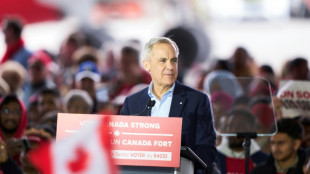
-
 Barcelona crush Chelsea to reach women's Champions League final
Barcelona crush Chelsea to reach women's Champions League final
-
Nine killed as driver plows into Filipino festival in Canada

-
 Germany marks liberation of Bergen-Belsen Nazi camp
Germany marks liberation of Bergen-Belsen Nazi camp
-
Hojlund strikes at the death to rescue Man Utd in Bournemouth draw

-
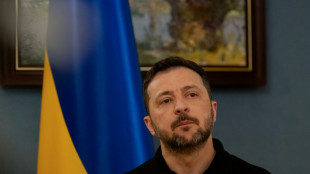 Zelensky says Ukraine not kicked out of Russia's Kursk
Zelensky says Ukraine not kicked out of Russia's Kursk
-
Zverev, Sabalenka battle through in Madrid Open, Rublev defence over

-
 Ruthless Pogacar wins Liege-Bastogne-Liege for third time
Ruthless Pogacar wins Liege-Bastogne-Liege for third time
-
Bumrah claims 4-22 as Mumbai register five straight IPL wins

-
 No place for racism, hate in France, says Macron after Muslim killed in mosque
No place for racism, hate in France, says Macron after Muslim killed in mosque
-
Greenland leader says Trump's threats disrespectful
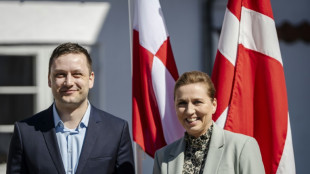
-
 Spain's Alex Marquez celebrates maiden MotoGP in home Grand Prix
Spain's Alex Marquez celebrates maiden MotoGP in home Grand Prix
-
Iran's president visits site of port blast that killed 28

-
 French rapper Jul breaks attendance record at national stadium
French rapper Jul breaks attendance record at national stadium
-
Gaza ministry says hundreds of war missing confirmed dead, toll at 52,243

-
 Crowds flock to Pope Francis tomb, as eyes turn to conclave
Crowds flock to Pope Francis tomb, as eyes turn to conclave
-
'Godfather' director Coppola bags lifetime achievement award

-
 Assefa sets world record, Sawe destroys high class field in London marathon
Assefa sets world record, Sawe destroys high class field in London marathon
-
'No excuse': Real Madrid's Rudiger after throwing object at ref

-
 Fire blazes day after Iran port blast killed 28, injured 1,000
Fire blazes day after Iran port blast killed 28, injured 1,000
-
Real Madrid meltdown after third Clasico defeat inevitable end to ugly weekend

-
 Nine killed as driver plows into Vancouver festival crowd
Nine killed as driver plows into Vancouver festival crowd
-
Crumbs! Should French bakeries open on May 1?

-
 All eyes turn to conclave as Pope Francis tomb opens to public
All eyes turn to conclave as Pope Francis tomb opens to public
-
Emotional Penge bounces back from betting ban for first DP Tour win

-
 25 killed, 1,000 injured in huge Iran port blast
25 killed, 1,000 injured in huge Iran port blast
-
Greenland PM visits Denmark as Trump threats loom

-
 Philippines, US test air defences as China seizes reef
Philippines, US test air defences as China seizes reef
-
25 killed, fires still burning in huge Iran port blast

-
 India and Pakistan troops exchange fire in Kashmir
India and Pakistan troops exchange fire in Kashmir
-
Eighteen killed, fires still burning in huge Iran port blast

-
 No handshake at muted India-Pakistan border ceremony
No handshake at muted India-Pakistan border ceremony
-
Maligned by Trump, White House reporters hold subdued annual gala

-
 Austria trials DNA testing to uncover honey fraud
Austria trials DNA testing to uncover honey fraud
-
Trump trade war pushes firms to consider stockpiling
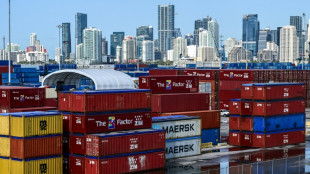
-
 D'Backs' Suarez becomes 19th MLB player to hit four homers in one game
D'Backs' Suarez becomes 19th MLB player to hit four homers in one game
-
Continuity or rupture: what direction for the next pope?

-
 Surridge scores four as Nashville smash seven past Chicago
Surridge scores four as Nashville smash seven past Chicago
-
Chinese tea hub branches into coffee as tastes change

-
 Diplomacy likely to trump geography in choice of new pope
Diplomacy likely to trump geography in choice of new pope
-
All eyes turn to conclave after Pope Francis's funeral

-
 Doves, deaths and rations: Papal elections over time
Doves, deaths and rations: Papal elections over time
-
Progressive Canadians say social issues blown off election agenda

-
 Liverpool primed for Premier League title party
Liverpool primed for Premier League title party
-
Buenos Aires bids farewell to Francis with tears, calls to action
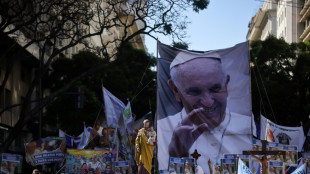
-
 Thunder sweep past Grizzlies in NBA playoffs, Cavs on brink
Thunder sweep past Grizzlies in NBA playoffs, Cavs on brink
-
Major blast at Iran port kills 14, injures 750
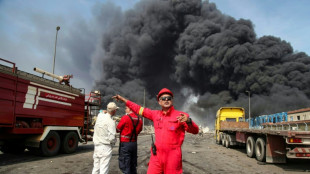
Meta's announcements and digital services?
Recent announcements by Meta, the technology conglomerate formerly known as Facebook, are raising questions about compliance with new and upcoming European digital regulations. In particular, critics argue that Meta’s proposed changes—ranging from expanded encryption options to the way it handles user data—could conflict with the European Union’s (EU) Digital Services Act (DSA).
The Digital Services Act is part of the EU’s broader effort to modernize internet governance, alongside the Digital Markets Act (DMA) and other legislation.
The DSA aims to:
- Increase Transparency: Large online platforms must disclose how their algorithms rank content and ads.
- Enhance Accountability: Platforms must tackle illegal or harmful content promptly, and offer clear mechanisms for users to report it.
- Protect User Rights: Users should be able to appeal content takedowns and have better insight into how and why posts are removed or demoted.
These rules place heightened responsibilities on big tech companies—those classified as “very large online platforms” with tens of millions of European users.
Meta’s Recent Announcements:
Over the past few months, Meta has shared several updates about its business strategy and platform operations, including:
- Increased End-to-End Encryption: Meta plans to make messaging on Facebook Messenger, Instagram, and WhatsApp more robustly encrypted.
- Data Collection and Personalization: Meta continues to prioritize data-driven ad targeting, which remains a central component of its revenue model.
- Content Moderation Tools: The company has signaled new automated detection systems to handle harmful content.
At first glance, these moves might appear aligned with a more privacy-focused approach. However, some experts contend that the heightened encryption and ongoing data collection practices might not fully align with the EU’s expectations for transparency, oversight, and user empowerment.
Potential Areas of Conflict
Algorithmic Transparency:
The DSA requires large platforms to provide clearer information on how content is promoted or suppressed. Critics say Meta’s push toward deeper encryption and minimal disclosure about proprietary ranking algorithms may hinder third-party audits.
User Rights and Appeals:
With increased automation in content moderation, users must have meaningful ways to appeal decisions. Observers note that Meta’s announcements have not specified whether appeals processes will be enhanced alongside new AI-driven moderation systems.
Data Governance and Consent:
Meta’s continued reliance on personalized advertising could come under scrutiny if user data is processed in ways that the DSA considers insufficiently transparent. The EU seeks stronger user consent mechanisms and clearer data usage disclosures, which might push Meta to adjust its business model in Europe.
Regulatory and Public Reactions
EU Officials:
While no formal statement has condemned Meta’s announcements outright, policymakers in Brussels remind all major platforms that “partial compliance” will not be enough under the DSA. Fines for non-compliance can reach up to 6% of a company’s global annual revenue.
Digital Rights Advocates:
Several advocacy groups argue that fully end-to-end-encrypted messaging, while privacy-enhancing, should not exempt a platform from accountability measures. They urge Meta to release more details about how it will reconcile encryption with obligations to remove illegal content.
Meta’s Response:
Thus far, Meta has reiterated its commitment to meeting the “highest regulatory standards” in Europe, pointing to ongoing investments in safety, content moderation, and user privacy. However, no specific roadmap for DSA compliance has been published.
What Lies Ahead:
As the DSA comes fully into force, large platforms like Meta will be closely monitored for breaches. A key question is whether Meta can strike a balance between encryption, monetization via targeted ads, and the new transparency and accountability requirements. Failure to do so could result in hefty fines or even a partial suspension of services within the EU.
Ultimately, the coming months will reveal how Meta’s strategies align—or clash—with Europe’s digital vision. If Meta can demonstrate robust compliance and meaningful user protections, it may preserve its market stronghold. If not, a confrontation with Brussels seems inevitable. Either way, the outcome will have sweeping implications for how major tech firms operate under a stricter European regulatory regime.

Russian Bastards murder defenceless children in Ukraine

Россия: Военные преступники Путин заберёт на войну всех

Тысячи погибших солдат российского террора опознаны! Свинья Пригожин теперь хочет мира?

Россия: Пропагандисты ликуют: отрезали голову!

Пригожин оправдывается | Лавров умоляет о везите в США

Россия: Здоровье Навального в опасности

Россия: Вагнеровцев не хотят хоронить!

Вам пришла повестка на Госуслугах. Что делать?

Россия: Людмила Путин зарабатывала на долгах

Ukraine: Bakhmut at the centre of the fight against Russia's terror?

Arms imports to Europe have risen sharply, new report finds



